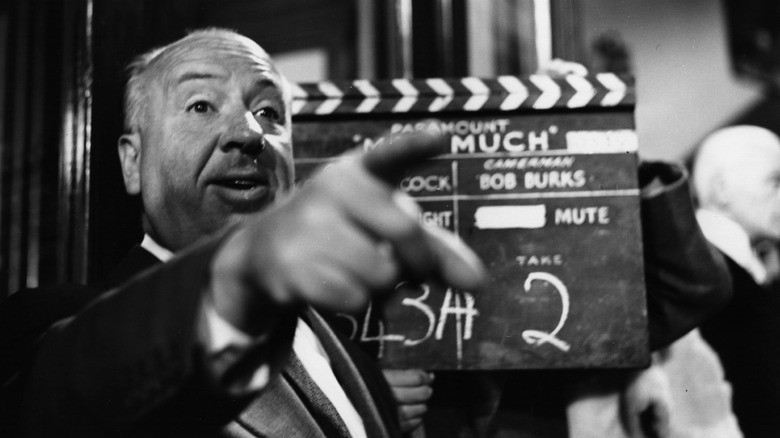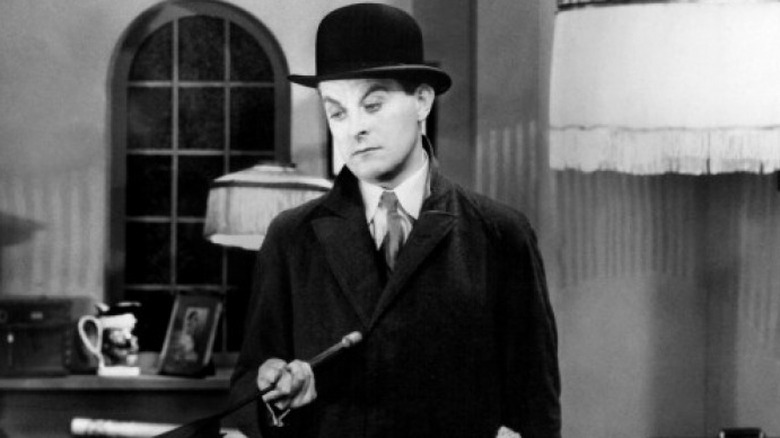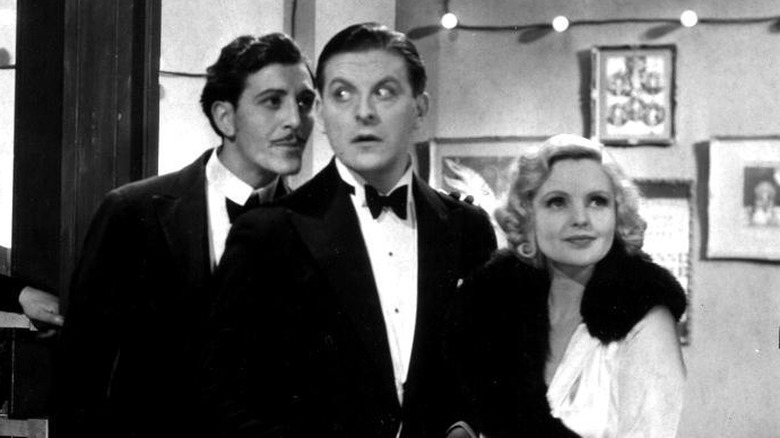The Box Office Flop That Taught Alfred Hitchcock How Important Casting Could Be
There are few directors more universally acclaimed than Alfred Hitchcock. Maybe Orson Welles didn't like him much, but there were few people Orson Welles didn't dislike, so we'll let that slide. With films like "Psycho,", "Vertigo," and "The Birds," Hitchcock produced countless timeless classics, innovating the medium of film itself.
With all of his successes so well known, some may be surprised to learn of his struggles earlier in his career. During the 1930s, Hitchcock would admit himself that his "reputation wasn't very good" and he endured some pretty severe box office flops. Chief among these was "Rich and Strange," his 1931 film based on a novel by Dale Collins. History has been slightly kinder to it than critics at the time, but that can easily be amounted to bias on the part of modern critics, who watched the film knowing what a legendary auteur Alfred Hitchcock would go on to become. At the time of the film's release, it was Hitchcock's greatest failure, and somewhat of the nadir of his career. Obviously, Hitchcock managed to recover and still release some of the greatest films of his time, but he credits the failure of "Rich and Strange" with teaching him some valuable lessons about filmmaking.
Indifferent casting
The film centers on a married couple, portrayed by Henry Kendall and Joan Barry, who lead a dull, routine life until they receive a small fortune from an uncle. With their newfound money, they adopt a luxurious lifestyle and eventually both enter affairs, eventually losing both their money and their marriage. Hitchcock is quoted in Francois Truffaut's biography of the filmmaking legend as saying that the problem with the film wasn't the story, which he considered very good despite the film's failure. He blamed the film's failure on what he calls "indifferent casting" on his part. "My mistake with 'Rich and Strange' was my failure to make sure that the two leading players would be attractive to the critics and audience alike," Hitchcock said. He stated that in those days, he was not self-critical enough in his film-making, and it was this lack of analysis of his own work that led to his lazy casting choices.
Henry Kendall, the leading man whose performance Hitchcock took umbrage with, was a stage actor by trade and would spend the rest of his life rather dismissive of his short foray into film acting. When asked about his films, he would glibly remark that he "commenced film career in 1931, and has appeared in innumerable pictures." Joan Barry, his co-star, would retire from acting altogether a few short years later in order to start a family. With both stars ending up with relatively short careers on the silver screen, perhaps Hitchcock was correct in his assessment of their star power.
Learning from mistakes
Audiences seemed to agree with Hitchcock's self-assessment of the film, as "Rich and Strange" failed at the box office in both the United States and Great Britain. The film's failure signaled the beginning of the end of Hitchcock's relationship with British International Pictures, the film studio with which he was working at the time. He would direct one and produce one more film for the studio before leaving the studio and heading to the United States, where he would make the movies that would revive his flailing career.
Despite the prolific nature of Hitchcock's work, even the most generous modern critics agree that "Rich and Strange" is nothing to go out of your way to see. Talk Film Society's "Beginner's Guide to Alfred Hitchcock" calls it an "enjoyable little comedy" but remarks that the film is "not great but odd enough to be worth its running time," which seems like damningly faint praise.
And while the film isn't great, it still showcases some of the directorial skills and flair that would later be perfected in films like "The Birds" and "Rear Window".
If anything, the failure of "Rich and Strange" can be taken as a lesson by creatives of all stripes. It shows that an artist can use their early failures in order to enhance their later work, if they're willing to learn from their mistakes. And if an artist as brilliant as Alfred Hitchcock struggled in his early career and still managed to become the legend he's seen as today, anybody can become truly great.


